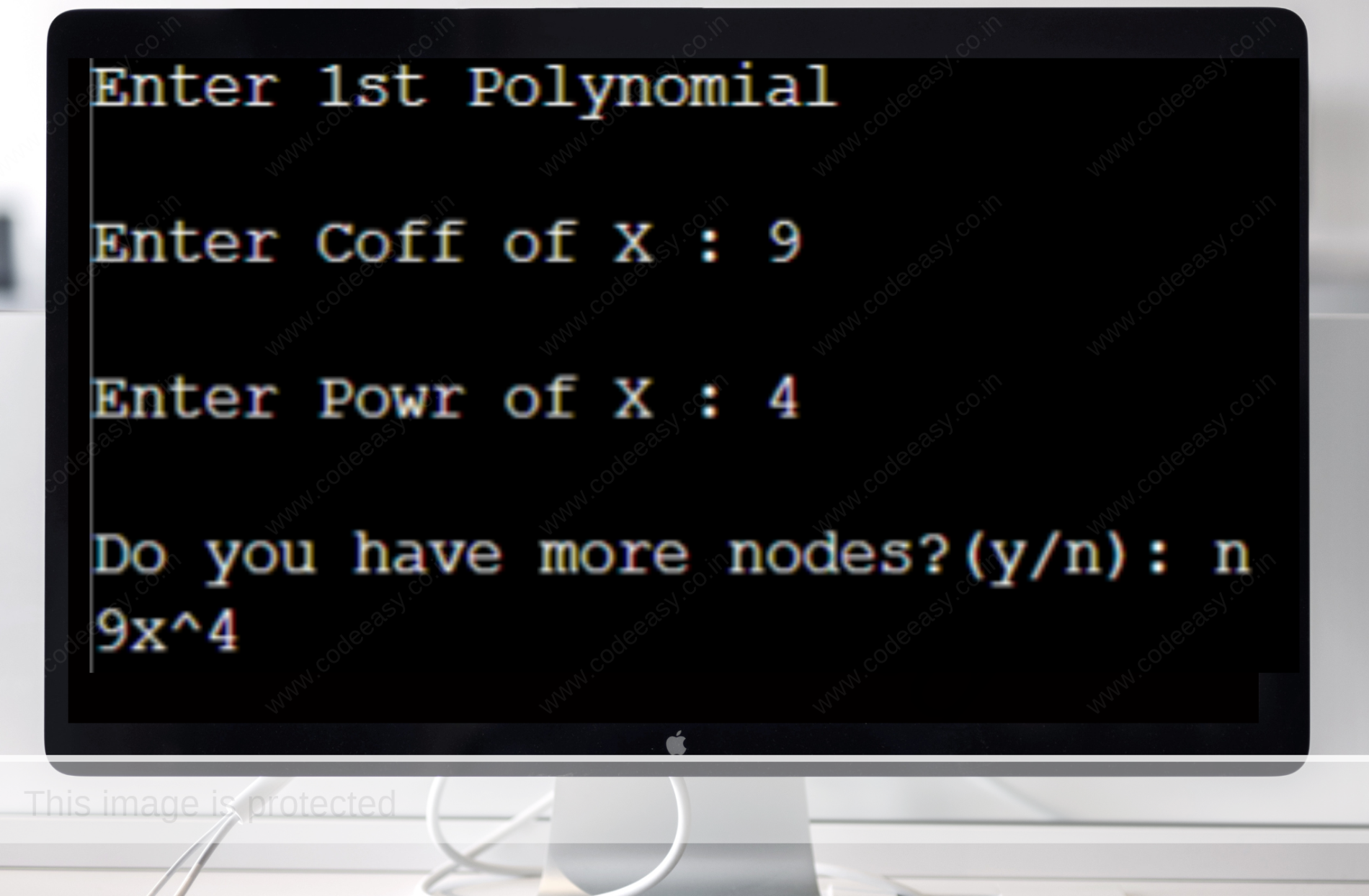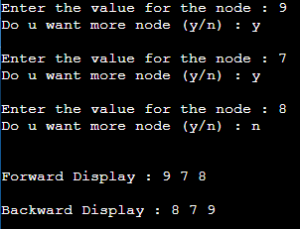Code for Polynomial Addition using Linked List (Basic Version)
This code is designed to implement Polynomial Addition using Linked List. In this code two polynomial form is taken as input from the user to represent a polynomial then using Polynomial addition technique these two polynomial is added. This Polynomial addition using linked list code will help to understand linear linked list member and basics of the linear linked list. This code will add two polynomial’s coefficient depending upon there term power.
For Such more codes click here and for video tutorial click here.
#include<stdio.h>
#include<stdlib.h>
typedef struct poly {
int coff, powr;
struct poly * next;
}
pl;
pl* creatpoly();
pl* addpoly(pl * , pl * );
void display(pl * );
void main() {
int n;
pl * pl1, * pl2, * pl3;
pl1 = pl2 = pl3 = NULL;
printf("\n Enter 1st Polynomial : ");
pl1=creatpoly( );
printf("\n Enter 2nd Polynomial : ");
pl2=creatpoly( );
printf("\n\n First Polynomial : ");
display(pl1);
printf("\n\n Second Polynomial : ");
display(pl2);
printf("\n\n After Addition Resulatnt Polynomial : ");
pl3=addpoly(pl1, pl2);
display(pl3);
}
pl* creatpoly() {
int cof, powe, temp = 10;
char ch;
pl *head=NULL,*ptr,*tmp, *t1;
while (1) {
printf("\n Enter Coff of X : ");
scanf("%d", & cof);
printf("\n Enter Powr of X : ");
scanf("%d", & powe);
if (powe < temp)
{
tmp = (pl * ) malloc(sizeof(pl));
tmp -> coff = cof;
tmp -> powr = powe;
tmp -> next = NULL;
if ( head == NULL) {
head = tmp;
} else {
t1 -> next = tmp;
}
t1=tmp;
}
else {
printf("\n Power must be lesser than the previous term :");
continue;
}
temp = powe;
printf("\n Do you have more nodes?(y/n): ");
fflush(stdin);
scanf(" %c", & ch);
if (ch == 'n' || ch == 'N')
break;
}
return head;
}
pl* addpoly(pl * ptr1, pl * ptr2 ) {
pl *p3, * temp,*ptr3=NULL;
while (ptr1 != NULL && ptr2 != NULL) {
if ((ptr1 -> powr) > (ptr2 -> powr)) {
p3 = ptr1;
ptr1 = ptr1 -> next;
} else if (ptr1 -> powr < ptr2 -> powr) {
p3 = ptr2;
ptr2 = ptr2 -> next;
} else {
ptr1 -> coff = ptr1 -> coff + ptr2 -> coff;
p3 = ptr1;
ptr1 = ptr1 -> next;
ptr2 = ptr2 -> next;
}
if ( ptr3 == NULL)
ptr3 = p3;
else
temp -> next = p3;
temp = p3;
}
if (ptr1 == NULL && ptr2 != NULL)
temp -> next = ptr2;
if (ptr1 != NULL && ptr2 == NULL)
temp -> next = ptr1;
return ptr3;
}
void display(pl * h) {
while (h -> next != NULL) {
printf("%dx^%d+", h -> coff, h -> powr);
h = h -> next;
}
printf("%dx^%d", h -> coff, h -> powr);
}




